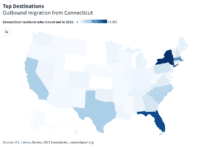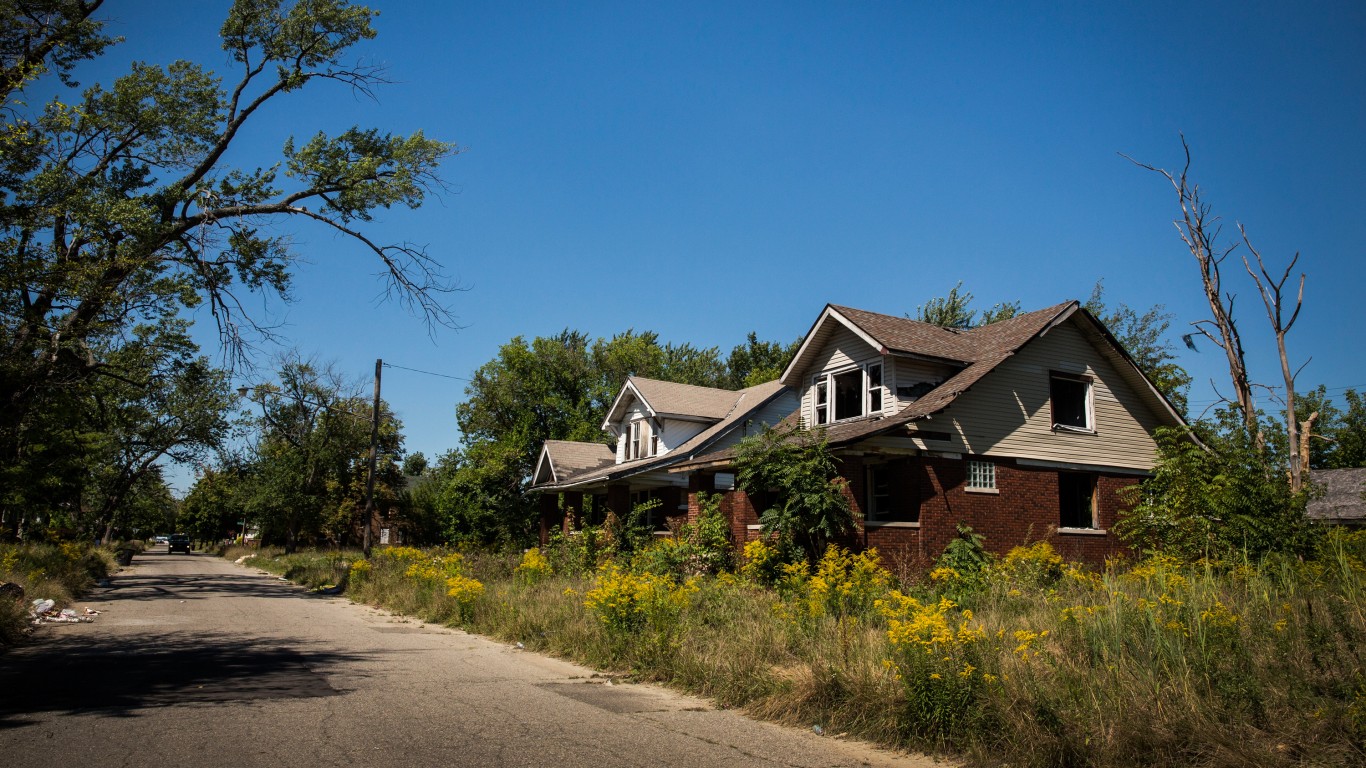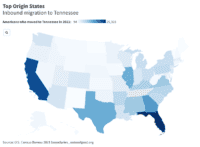
Concerns over access to crude oil have been front-page news recently. Sanctions against Russia have cut its oil exports. In turn, this caused the price of oil to rocket above $100 a barrel, near a record set just over a decade ago. While Russia is among the countries with the most oil reserves, Venezuela is the country that has the most oil. (These are the countries most dependent on Russian oil.)
The COVID-19 pandemic in China has curbed global demand recently, helping oil prices fall. Additionally, the Biden Administration will release 1 million barrels a day from the U.S. Strategic Petroleum Reserve. This will go on for six months, and some American allies have announced they will do the same.
The amount of oil a country has can be measured in two ways. The first is how much each produces. The U.S. produces 11,567,000 barrels a day, according to World Population Review. It is followed by Russia at 10,503,000 and Saudi Arabia at 10,225,000. These production levels determine which countries control the world’s oil and which have surpluses they can export.
Another way to measure oil by country is known as “proven oil reserves.” These generally refer to the quantities of oil in known reservoirs that geological and engineering surveys indicate can be recovered in the future. To find the country that has the most oil, 24/7 Wall St. studied BP’s Statistical Review of World Energy 2021, listing the countries with the 10 largest oil reserves.
Notably, some of the countries with the most oil reserves are not the largest producers. Not every country has sophisticated and well-funded oil industries like the U.S. and Saudi Arabia. These countries may face challenges in finding, drilling, and producing crude. (These are the countries that don’t have any oil.)
The country with the largest proven oil reserves, Venezuela, sits on 304 billion barrels, or about 17% of the global total reserves. Venezuela is followed by Saudi Arabia at 298 billion barrels. The U.S. ranks ninth at 69 billion barrels.
Venezuela has a serious production problem. Much of it is due to the fact that the country is poor, the government corrupt, and its infrastructure old. The Wall Street Journal reports, “Rusted and frequently damaged oil pipelines carry a fraction of the crude they once could. Rigs that once dotted the landscape in the country’s oil-rich sectors have gone quiet.”
It will take years to increase Venezuela’s capacity to produce oil with modern equipment. This likely means joint ventures with the largest oil companies, which include a number of U.S. oil and gas giants. That in turn, will be difficult while the corrupt government of Nicolás Maduro Moros is in power. And as a dictator, he could be in office for years.
Click here to see the country that has the most oil
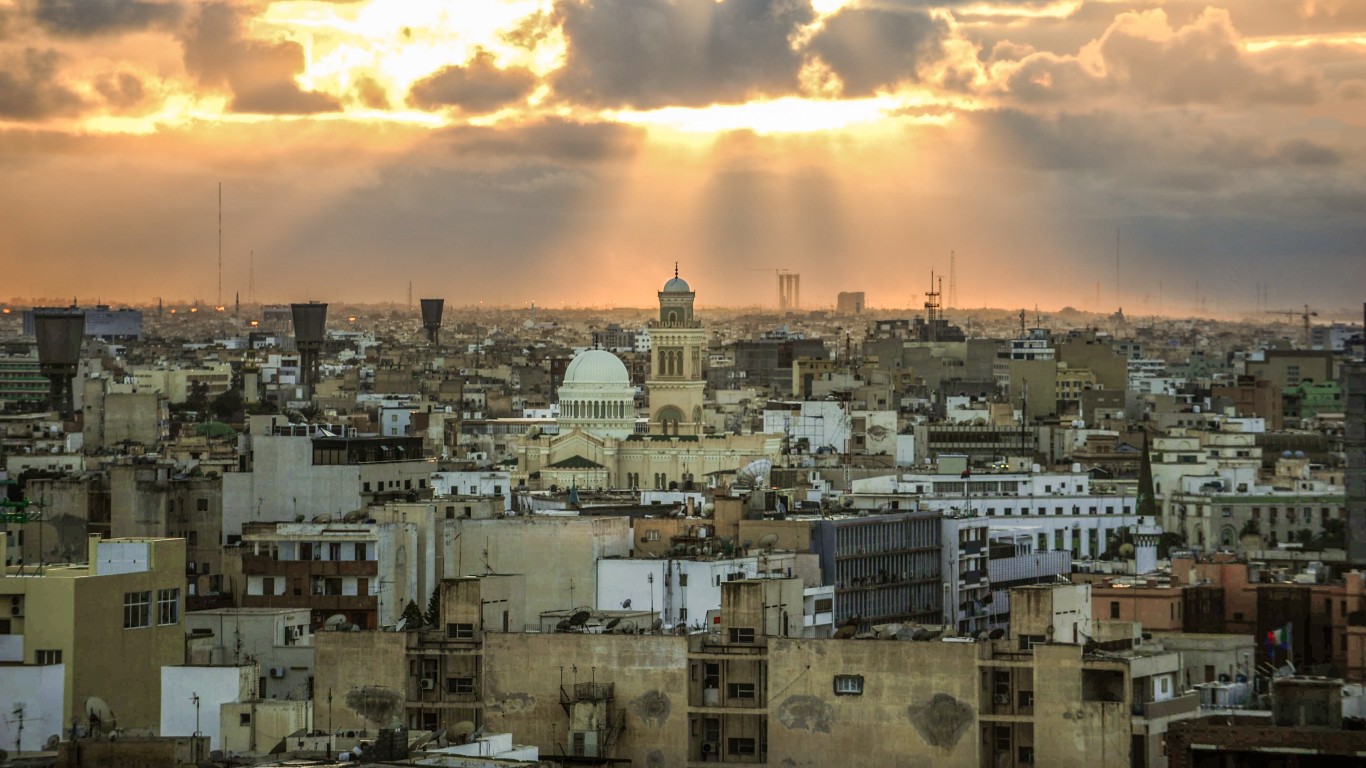
10. Libya
> Reserves: 48.4 billion barrels
> Percent of the world’s reserves: 2.8%
[in-text-ad]
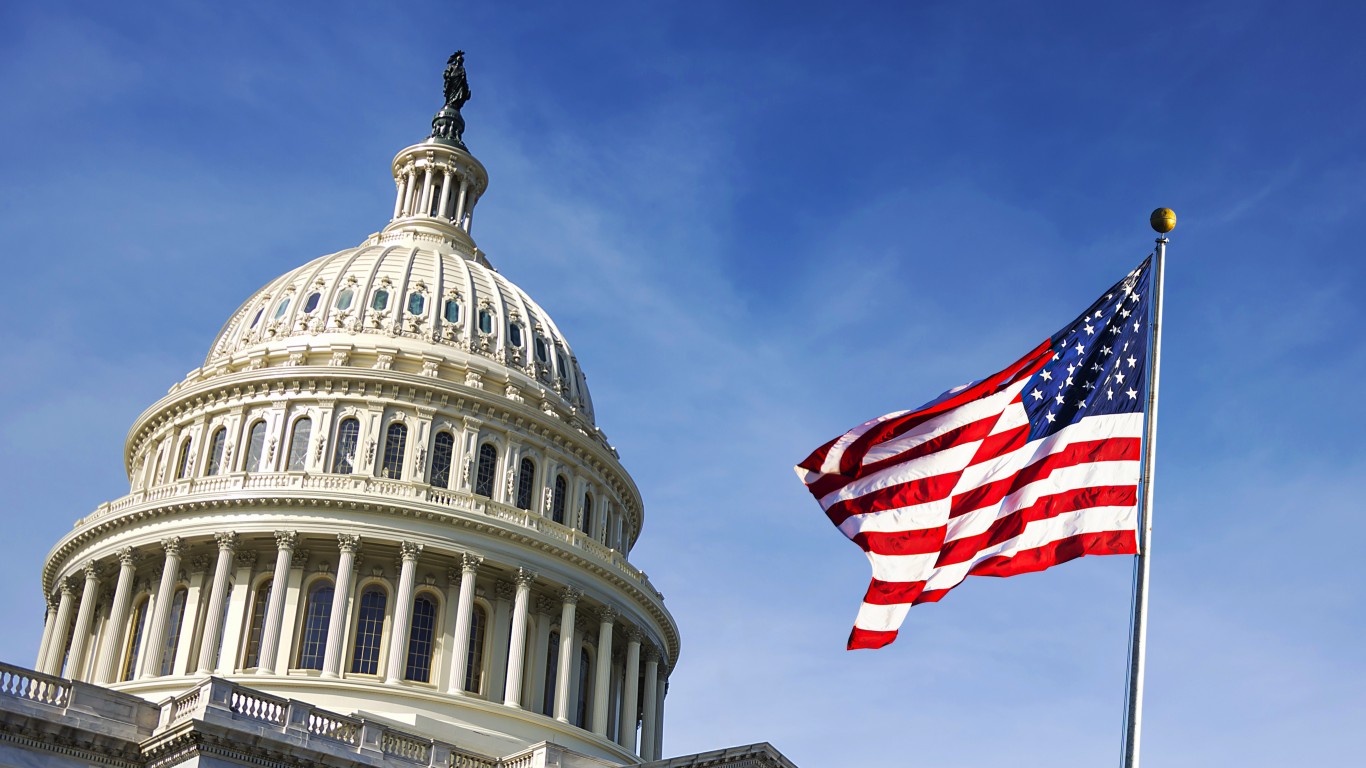
9. United States
> Reserves: 68.8 billion barrels
> Percent of the world’s reserves: 4%

8. United Arab Emirates
> Reserves: 97.8 billion barrels
> Percent of the world’s reserves: 5.6%
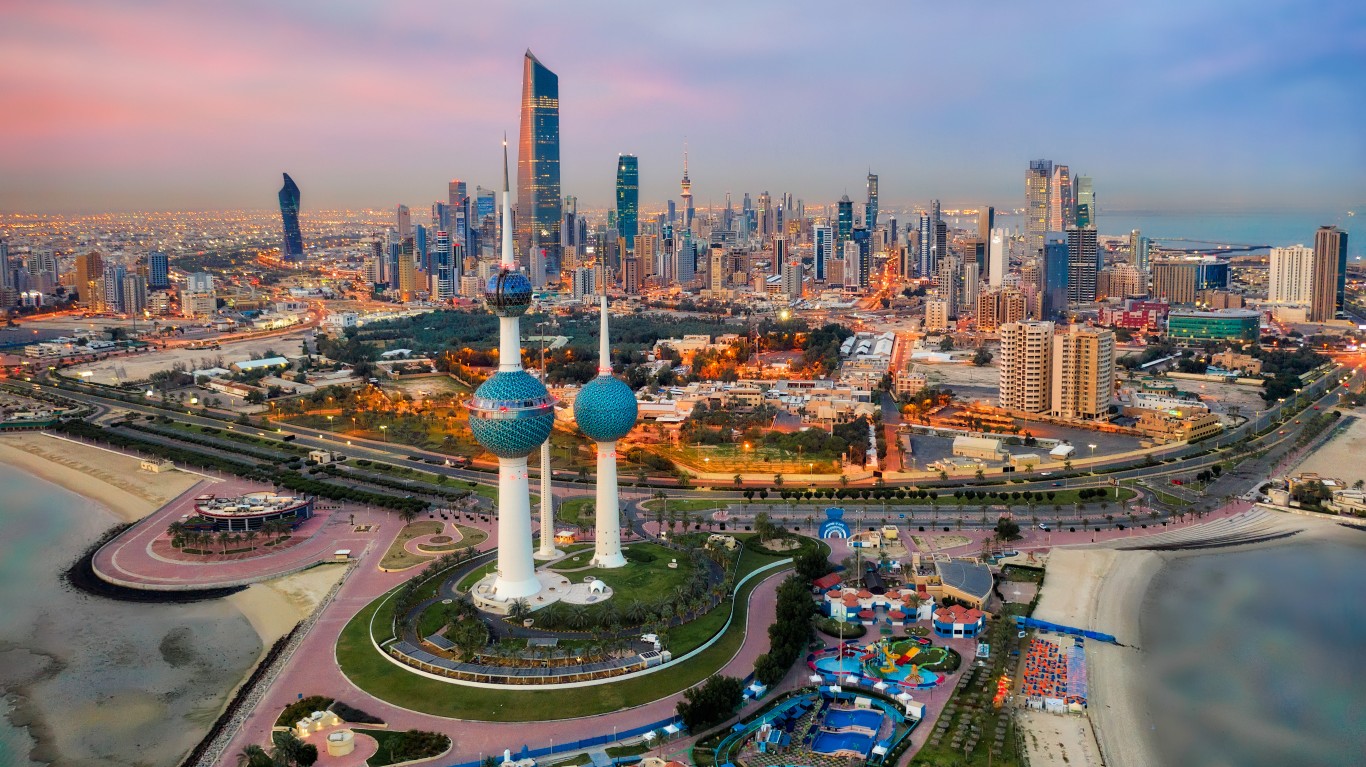
7. Kuwait
> Reserves: 101.5 billion barrels
> Percent of the world’s reserves: 5.9%
[in-text-ad-2]
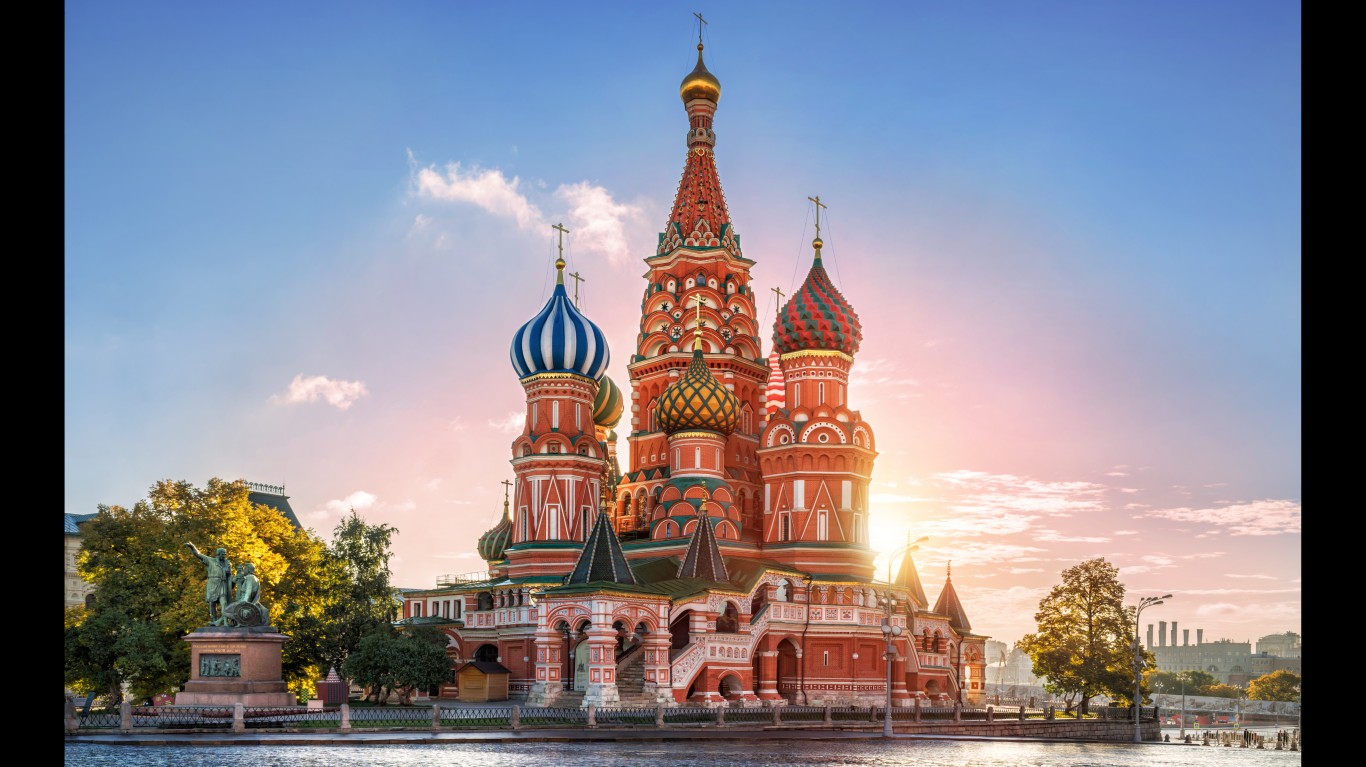
6. Russia
> Reserves: 107.8 billion barrels
> Percent of the world’s reserves: 6.2%

5. Iraq
> Reserves: 145 billion barrels
> Percent of the world’s reserves: 8.4%
[in-text-ad]
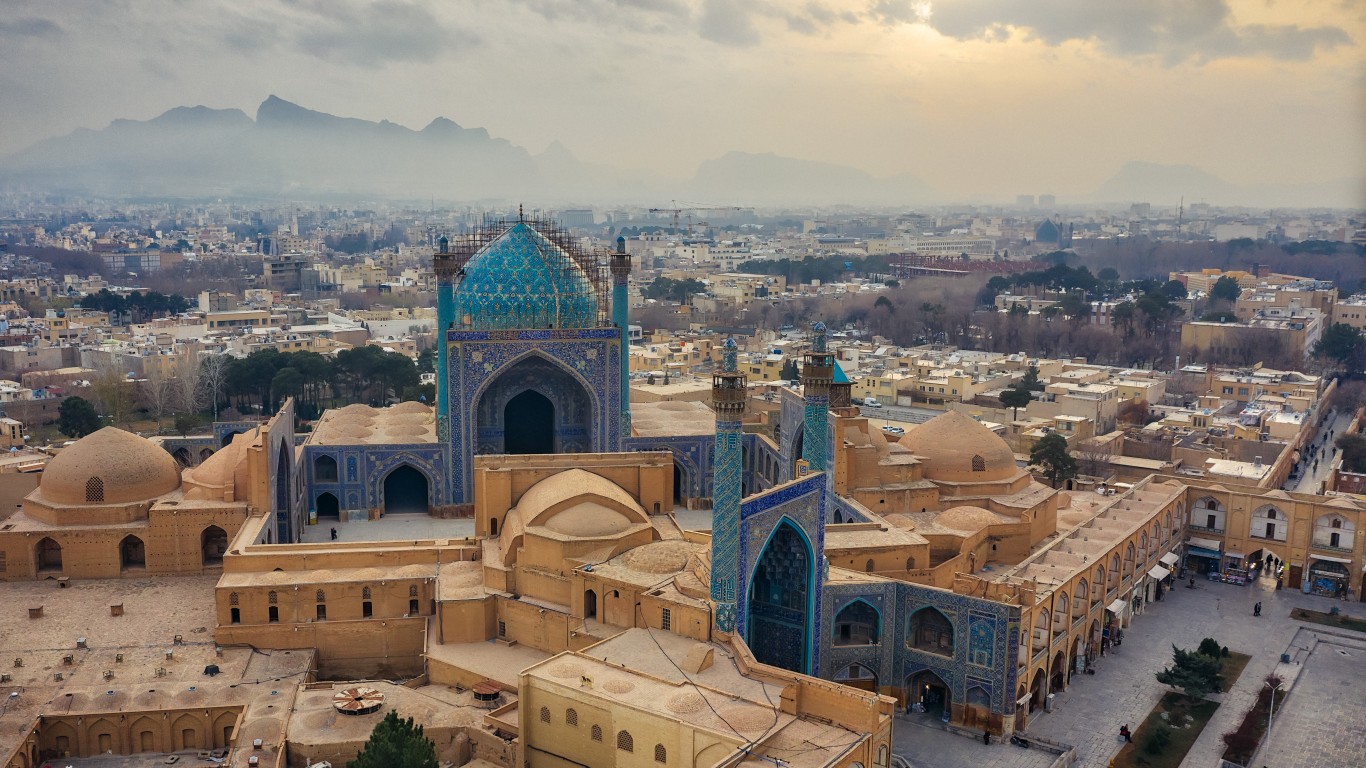
4. Iran
> Reserves: 157.8 billion barrels
> Percent of the world’s reserves: 9.1%
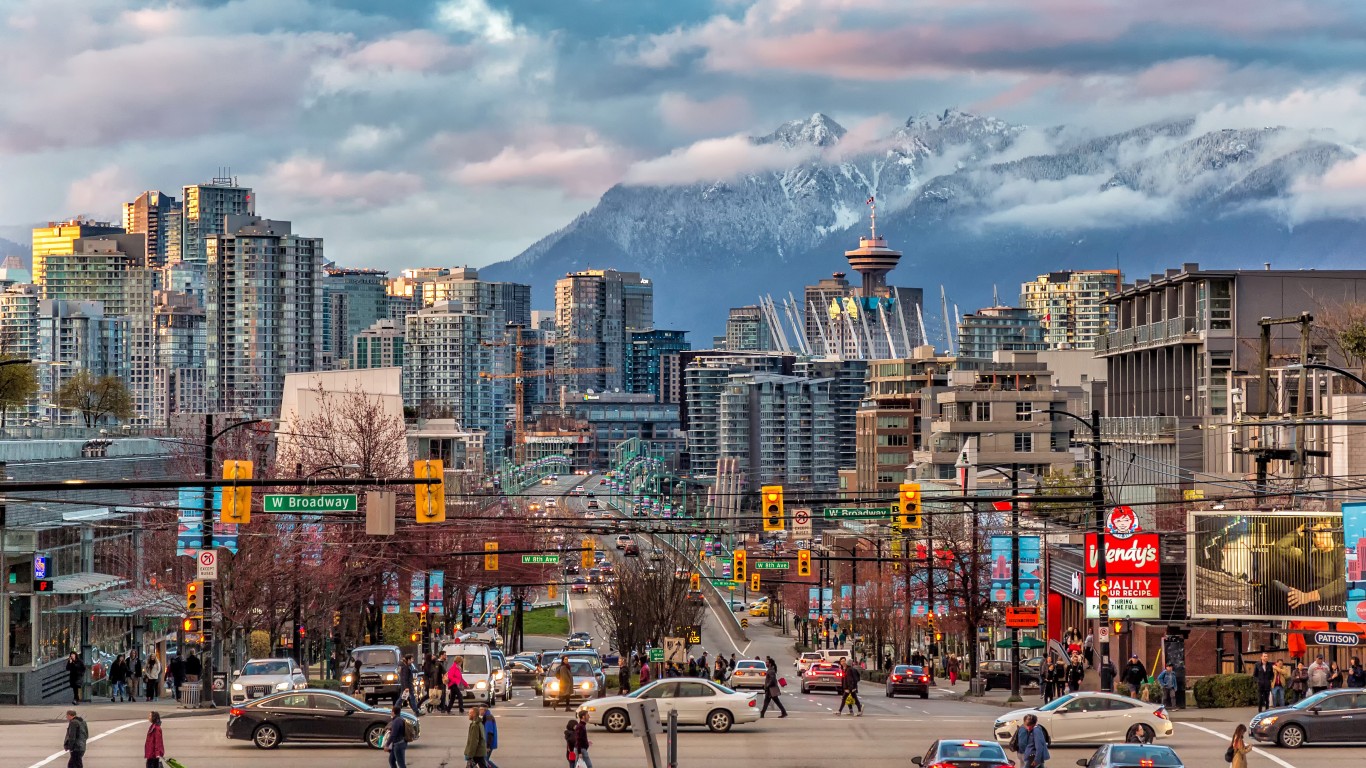
3. Canada
> Reserves: 168.1 billion barrels
> Percent of the world’s reserves: 9.7%
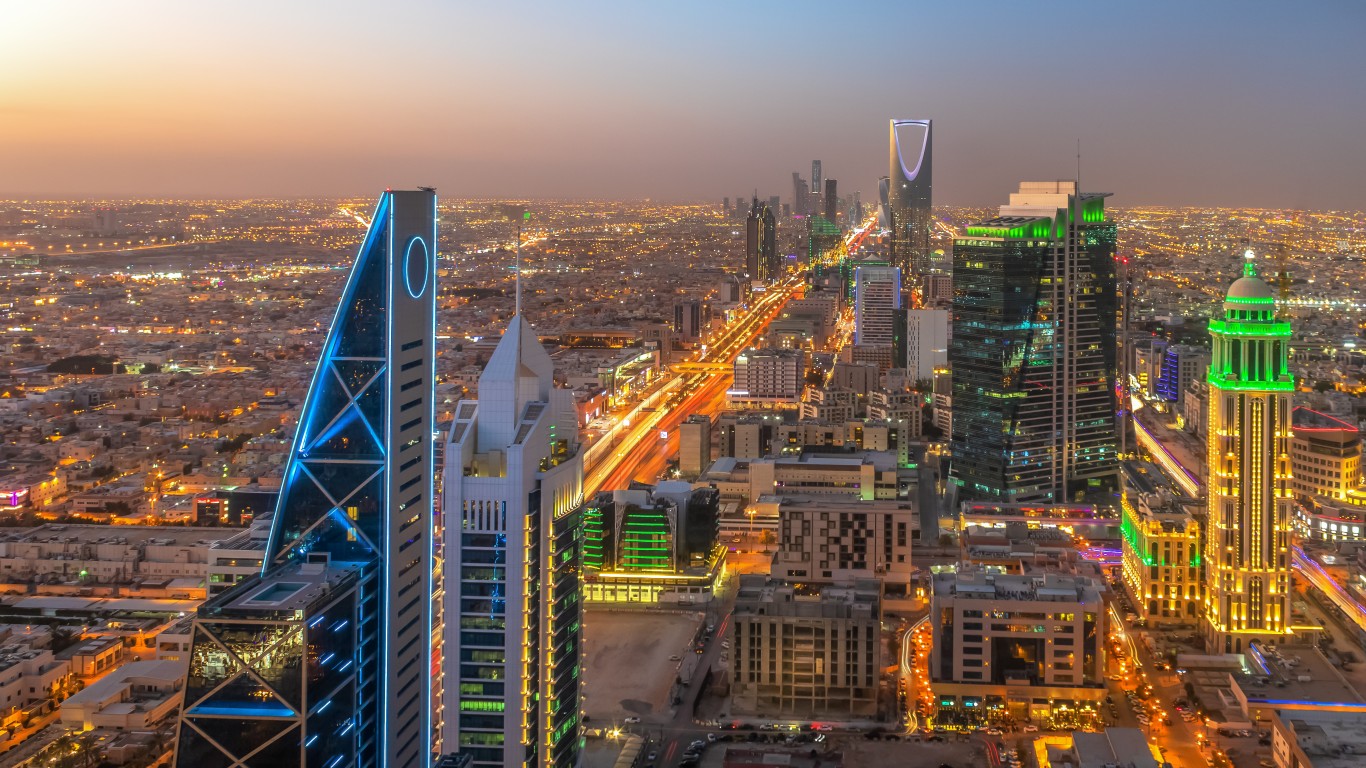
2. Saudi Arabia
> Reserves: 297.5 billion barrels
> Percent of the world’s reserves: 17.2%
[in-text-ad-2]
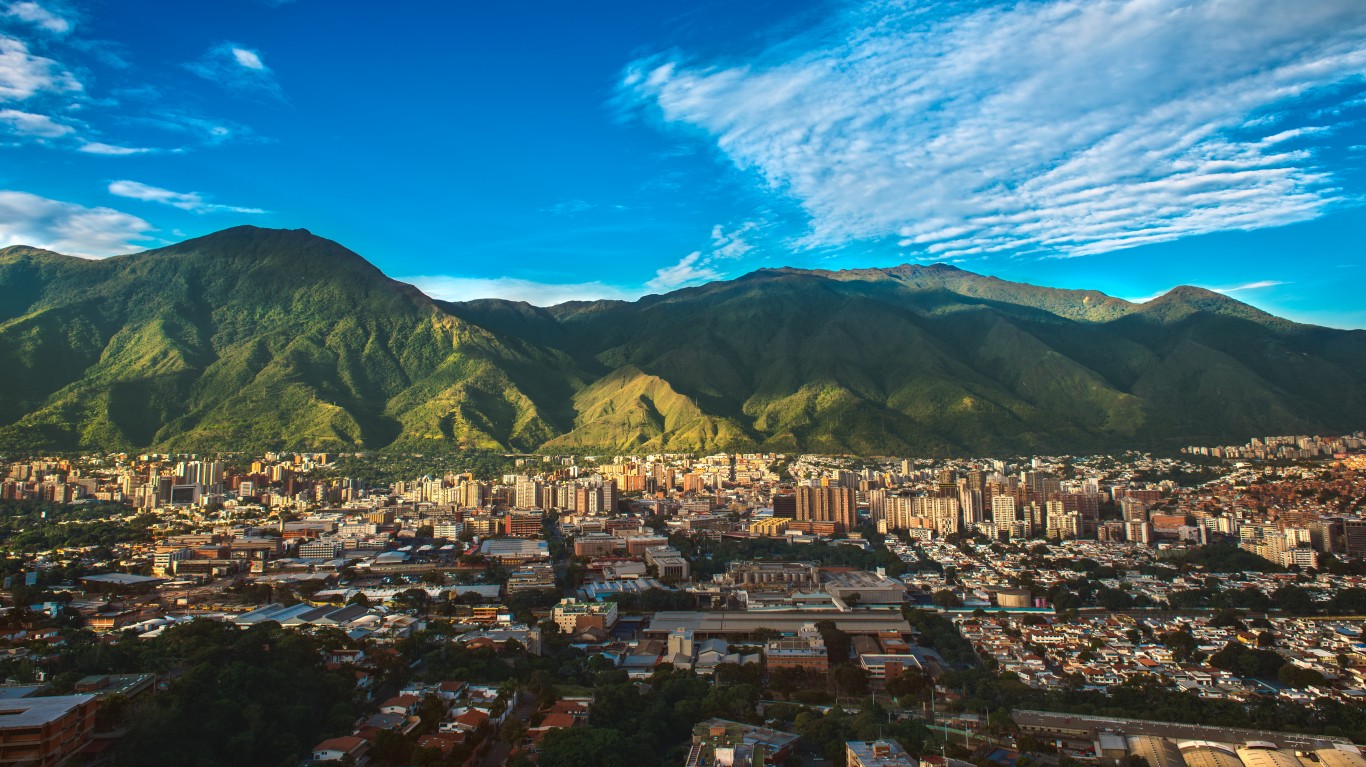
1. Venezuela
> Reserves: 303.8 billion barrels
> Percent of the world’s reserves: 17.5%
Take This Retirement Quiz To Get Matched With An Advisor Now (Sponsored)
Are you ready for retirement? Planning for retirement can be overwhelming, that’s why it could be a good idea to speak to a fiduciary financial advisor about your goals today.
Start by taking this retirement quiz right here from SmartAsset that will match you with up to 3 financial advisors that serve your area and beyond in 5 minutes. Smart Asset is now matching over 50,000 people a month.
Click here now to get started.
Thank you for reading! Have some feedback for us?
Contact the 24/7 Wall St. editorial team.
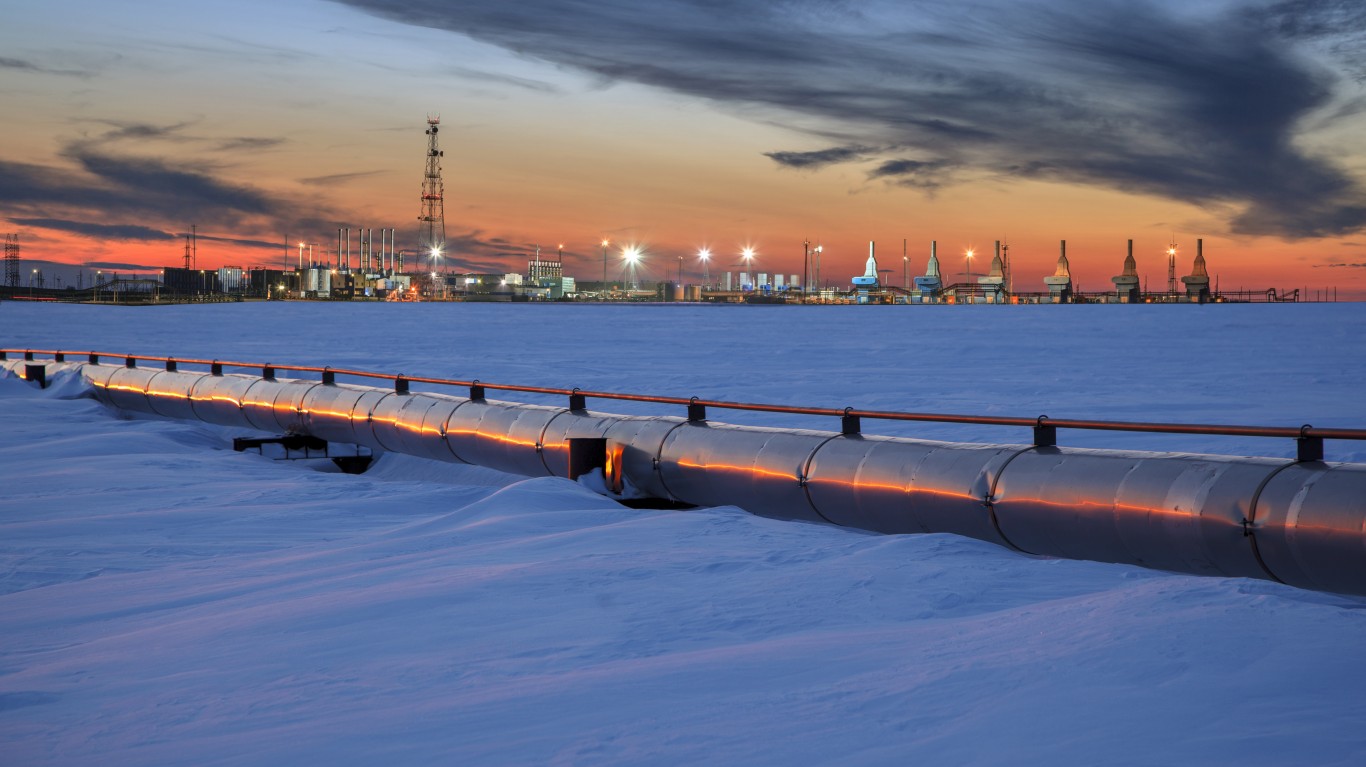 24/7 Wall St.
24/7 Wall St.